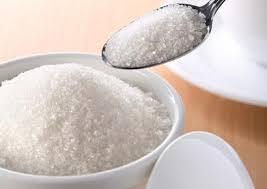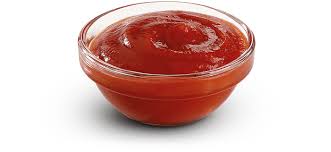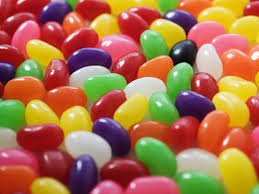 Today, most of us already know that over-consuming processed sugar is generally unhealthy. And while we know that sugary drinks, like soda or fruit juice, are bad for us, we still often overlook the health danger in favor of good taste or “refreshing” flavor.
Today, most of us already know that over-consuming processed sugar is generally unhealthy. And while we know that sugary drinks, like soda or fruit juice, are bad for us, we still often overlook the health danger in favor of good taste or “refreshing” flavor.
We like to remain pleasantly ignorant of the added sugar silently lurking in our everyday foods. Starting with our first yummy bowl of cereal in the morning, to the ketchup we lovingly pour all over our delicious lunch burger, and finally to that last warm spoonful of desert we eat before bed -- our daily processed sugar tally is starting to add up. Add a teaspoon or sugar to coffee here or there, and enjoy the convenience of processed foods to make meals easier, and now we are at “high alert” levels of sugar consumption. Even many of the so-called “healthy” low-fat foods we’ve chosen, are loaded with well hidden, processed sugar. Just read the fine print on the labels and you’ll see.
spoonful of desert we eat before bed -- our daily processed sugar tally is starting to add up. Add a teaspoon or sugar to coffee here or there, and enjoy the convenience of processed foods to make meals easier, and now we are at “high alert” levels of sugar consumption. Even many of the so-called “healthy” low-fat foods we’ve chosen, are loaded with well hidden, processed sugar. Just read the fine print on the labels and you’ll see.
In its natural state, sugar is a relatively harmless—even necessary—carbohydrate that our  bodies need to function. It's naturally found in fruits, vegetables, and dairy as a compound known as fructose or lactose. The problem comes when sugar is added to foods during processing for added flavor, texture, or color. This is more common than you may think. Soon you start to realize you don't have to be at the candy counter to be surrounded by added sugar.
bodies need to function. It's naturally found in fruits, vegetables, and dairy as a compound known as fructose or lactose. The problem comes when sugar is added to foods during processing for added flavor, texture, or color. This is more common than you may think. Soon you start to realize you don't have to be at the candy counter to be surrounded by added sugar.
Each year, the U.S. Office of Disease Prevention and Health Promotion publishes the Scientific Report of Dietary Guidelines. (It can be found on the Health.gov website.) In 2015, this report announced that today’s average American consumes and average of 268 calories of sugar each day. This puts sugar over 13% of our total calorie intake, significantly higher than the recommended guideline of 3 – 6%. A good gauge of how much processed sugar you're actually consiming is to try to use no more than 4 – 9 teaspoons per day, and make sure you're accounting for the sugar contribution of processed food and sweets.
It is important to note that processed sugar calories are “empty calories”. These calories provide few or no nutrients that can support the daily healthy functioning of your body. Not only does processed sugar lack viable nutrients, its intake can actually be harmful to your health. 
US Family Health Plan – a TRICARE PRIME health program – is devoted to helping you stay healthy and happy. So today, we are officially calling processed sugar out as the lowdown culprit that it is. Here are 10 of the most important health reasons to reduced your daily intake of processed sugar to be able to stay within healthy dietary guidelines.
- High sugar intake can result in high blood pressure. Obesity is a big consequence of too high daily sugar intake, and obesity can result in high blood pressure. High blood pressure is just the beginning of a series of bad health events. High blood pressure increases the work that the heart and arteries have to do to keep the body working properly.
 This work overload can damage the whole circulatory system, eventually leading to potential heart disease, heart attacks, stroke, kidney damage, artery disease, or eventual death. Even without weight gain, sugar alone can increase blood pressure. Just one more good reason to put the candy bar down!
This work overload can damage the whole circulatory system, eventually leading to potential heart disease, heart attacks, stroke, kidney damage, artery disease, or eventual death. Even without weight gain, sugar alone can increase blood pressure. Just one more good reason to put the candy bar down! - Too much sugar can trigger high cholesterol. People who consume a lot of added sugar are more likely to have lower levels of HDL, or good cholesterol, higher levels of LDL, or bad cholesterol, and higher levels of triglycerides, or blood fats. Bad cholesterol and blood fats clog up arteries and blood vessels, leading to heart disease that can kill.
- Sugar can “dull” the brain’s function. Your dentist has always warned you about how ability for sugar to eat away tooth enamel. What your dentist didn’t tell you is that sugar can eat away brain cells too. This damage can lead to impaired cognitive function and a reduction in the presence of proteins your body needs for good
 memory and responsiveness. High sugar intake is associated with metabolic syndrome – a condition that leads to loss of cognitive function and even changes in brain structure. So if you want to stay mentally sharp, put that can of sugary soda down! It isn’t helping you.
memory and responsiveness. High sugar intake is associated with metabolic syndrome – a condition that leads to loss of cognitive function and even changes in brain structure. So if you want to stay mentally sharp, put that can of sugary soda down! It isn’t helping you. - Too much sugar can lead to Alzheimer’s, dementia or even mental health problems. A diet high in added sugar reduces the body’s production of an important chemical that supports brain function, BDNF. This chemical helps the brain form new memories and recall past ones. Studies have shown there is a link between lowered levels of BDNF and Alzheimer’s or dementia (as well as many diabetic conditions). It has also been shown that continuous sugar spikes (caused by frequent intake of processed sugar throughout the day) causes the body’s naturally occurring insulin levels to become less effective. This can ultimately lead to depression and anxiety. So drop that ice cream sandwich right now.
- High processed sugar consumption stops you from looking your best. Over the course of a lifetime, eating too much processed sugar can cause your skin to look
 dull and wrinkled. This is due to a process called glycation, where the sugar in your bloodstream attaches to proteins to form advanced glycation end products called AGEs (an appropriate name). AGEs damage collagen and elastin, the very protein fibers that keep skin firm and elastic. And that damage leads to skin wrinkles, sagging, and loss of radiance. So remember what grandma used to say – beauty is as beauty does. So stop eating all that sugar!
dull and wrinkled. This is due to a process called glycation, where the sugar in your bloodstream attaches to proteins to form advanced glycation end products called AGEs (an appropriate name). AGEs damage collagen and elastin, the very protein fibers that keep skin firm and elastic. And that damage leads to skin wrinkles, sagging, and loss of radiance. So remember what grandma used to say – beauty is as beauty does. So stop eating all that sugar!
Sadly, this is just the beginning of a long list of reasons to reduce and/or manage your daily sugar intake. Need we mention them all? Diabetes, acne, fatty liver disease, heart disease, even cancer all go on the list. And the list goes on and on. Processed sugar is clearly a culprit of the highest caliber. But the main point is that we want you to be aware of the amount of sugar you consume every day, and stay alert to the “hidden” processed sugar lurking in your food. Read all your food labels. Control your cravings. Keep daily processed sugar intake to no more than 6 – 9 teaspoons per day (from all sources). And try to replace processed sugar and foods with more fresh fruits, vegetables, proteins, and dairy. This should do the trick.
The small step of controlling your sugar intake will yield major benefits to your health to give you a better life. Now that’s what US Family Health Plan is talking about! A healthier and happier life. Processed sugar your fake best friend that you need to get out of your life immediately. Just do it, and make room for better health.
